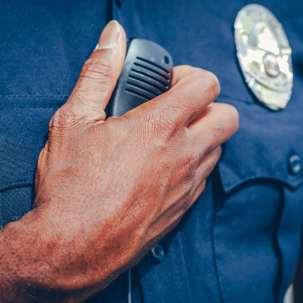You have heard of police officers notifying defendants of their right to remain silent when they read defendant's Miranda warnings after an arrest. You have also heard of witnesses pleading the Fifth Amendment while testifying under oath. There is more to the Fifth Amendment right to avoid self-incrimination, though. In some circumstances, you must provide certain pieces of information to the police. If you do not, you could be arrested for resisting an officer.
It is hard to stay calm when police approach you and behave aggressively; your first priority is to get out of the situation without violence, and your second priority is to protect your legal rights. Remember that if the state tries to use illegally obtained evidence against you, you have the right to challenge it. A Texas criminal defense lawyer at the Law Office of Patrick J. McLain, PLLC, can help you exercise your rights and achieve a successful outcome in your case.
You Must Speak in Order to Invoke Your Right to Remain Silent
When police initiate an interaction with you, you must provide a few basic pieces of information. For example, if a police officer asks you your name, you must answer truthfully. At a traffic stop, you must show the officer your driver’s license and vehicle registration upon request. You are never obligated to answer questions about your immigration status or where you were born. If an officer asks you about anything else, say, “I would like to speak to a lawyer.”
You Waive the Right to Remain Silent If You Let Your Phone or Computer Speak for You
If a police officer knocks on the door of your house, you must answer the door. Unless the police have a search warrant for your house, you are not obligated to let them in, and in fact, you should not. If they say they have a warrant, ask them to show it to you before you let them in.
Once you begin cooperating with the police, you cannot simply change your mind and invoke your right to remain silent. Cooperating involves not only verbally answering questions but also giving police access to your property. For example, do not hand your cell phone to a police officer because if you do, the police can search your phone and ask you additional questions about what they find. If police search your property pursuant to a warrant and ask you questions about it, you have the right to plead the Fifth Amendment in response to individual questions.
You cannot make a criminal investigation go away by ignoring it. You can, however, put yourself in a stronger position by working with a criminal defense lawyer at every stage of the process.
Contact the Law Office of Patrick J. McLain, PLLC, About the Criminal Process
You should hire a criminal defense lawyer as soon as possible after your arrest so that you can have a lawyer present with you during questioning by police. Contact our Dallas criminal defense attorney at the Law Office of Patrick J. McLain, PLLC, to discuss your case.

